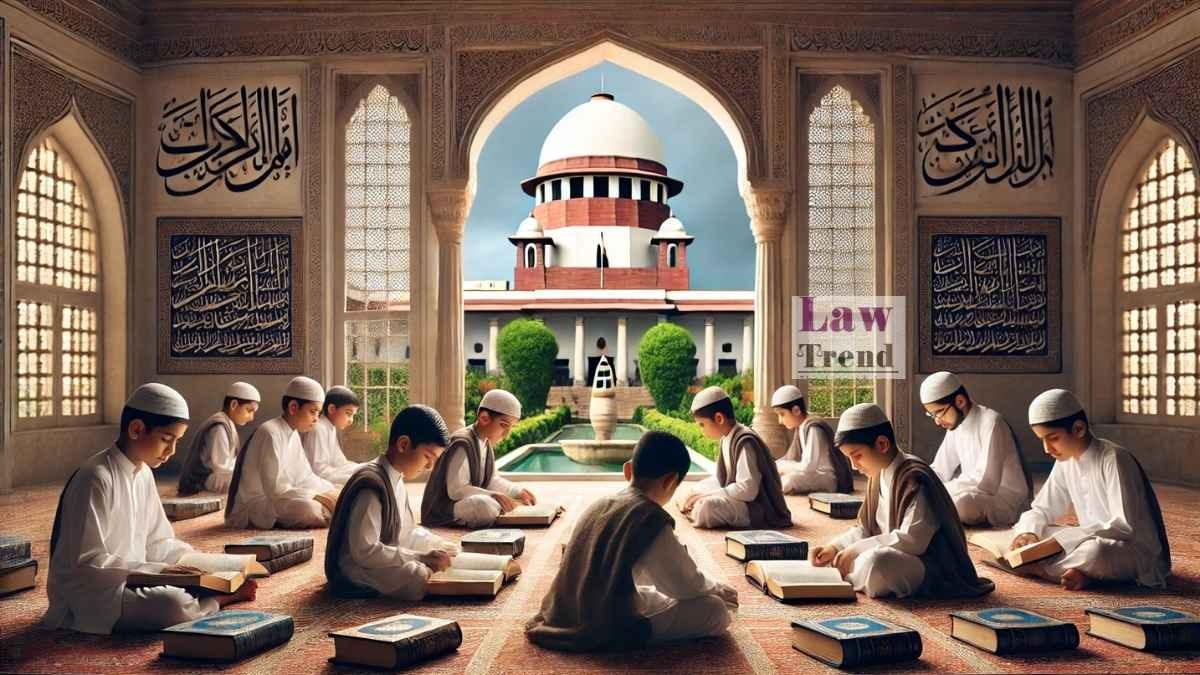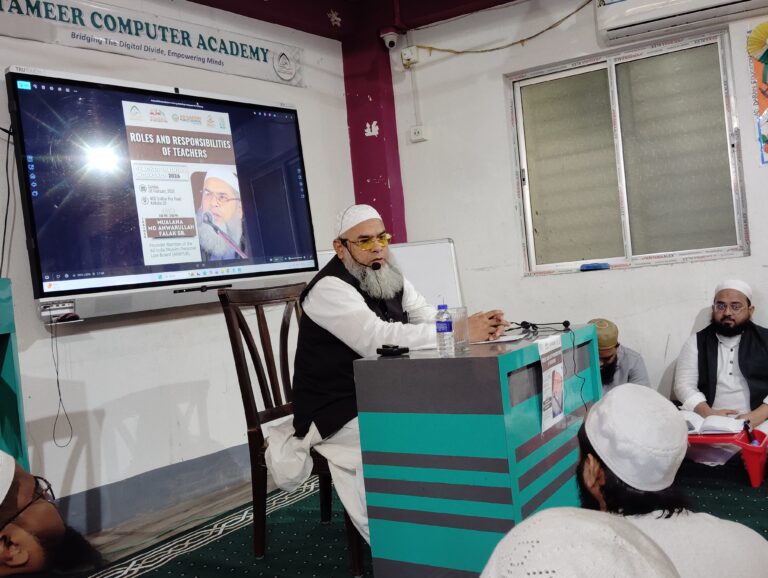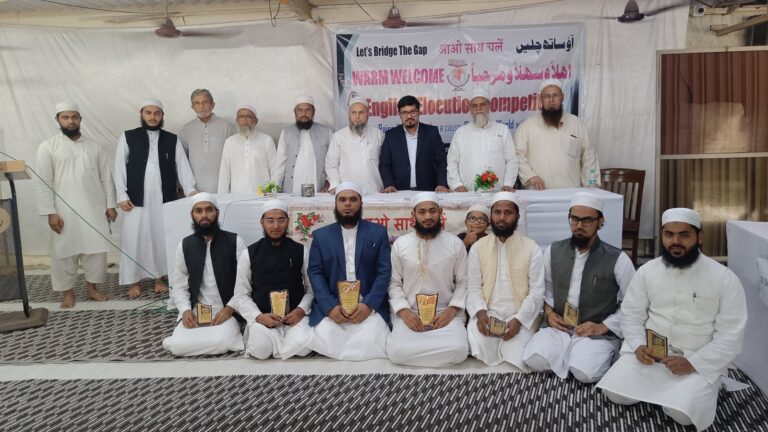
Improvement of Basic Education in Madrasas Possible, But No Interference in Autonomy: Supreme Court
Improvement of Basic Education in Madrasas Possible, But No Interference in Autonomy: Supreme Court
Mohammad Taukir Rahmani
EC Exclusive
On Tuesday 05/11/2024, a three-judge bench led by the Chief Justice of India, D.Y. Chandrachud, upheld the UP Madrasas Education Act of 2004, overturning the decision of the Allahabad High Court. The Supreme Court declared this law constitutional, affirming that madaris have the right to continue their religious and contemporary education. According to this decision, the UP government may take steps to improve the quality of education in madaris, but it is not necessary to convert them into schools or compromise their autonomy.
The court further clarified that the state may provide guidance to include basic and modern education in madaris, but there should be no attempt to transform them entirely along the lines of schools. In this way, while deciding in favor of the madaris, the court dismissed the UP government’s plea and upheld the religious and educational character of madrasas.
It is important to note that there are approximately 23,500 madaris in UP, of which only 16,513 are officially recognized. Out of these, 560 madrasas receive government financial assistance.
Observing the current state of officially recognized madaris, one feels that while funds are spent on building construction and display, adequate attention is not paid to registering madaris in official documents. As a result of this negligence, madaris often face strong criticism from the government and other individuals, which constantly causes harm. Consequently, many madaris frequently face challenges arising from government actions, which cast a shadow over the future of these institutions. Now, it has become crucial for madaris authorities to pay special attention to the completion of their documentation. They need to abandon the notion of reliance on God without taking preventive measures. Instead, they must adopt the kind of trust in God that the Prophet Muhammad (saws) described: “First, tie your camel to a post, then place your trust in Allah.” Therefore, it is essential to trust in God only after taking all necessary precautions; otherwise, there will be nothing to gain but loss.
In any case, this decision by the Supreme Court in favor of madaris is certainly praiseworthy. It is also a lesson and a shock to the state government and all those who are always looking for ways to discredit madaris. The court not only acknowledged the importance of the religious and contemporary role of madaris but also clarified that steps to improve educational standards in madaris should be encouraged, not attempts to end their autonomy.
This decision has provided the madaris education system with strong legal backing for their value and role, which will serve as a strong defense against any unnecessary interference in the future. Furthermore, the court instructed the government to ensure developmental plans and financial support to enhance the madrasa system so these institutions can align with the demands of the modern age.
You May Also Like
 Breaking News
Breaking NewsIsrael’s confession of Killings of Palestinians! (War in the name of ceasefire, The Board of Peace is a Shield for Israel)
Israel’s confession of Killings of Palestinians! All talk of peace is just a lie...
 Breaking News
Breaking NewsGrand Convocation Ceremony Held at MMERC, Mumbai
Grand Convocation Ceremony Held at MMERC, Mumbai EC News Desk 7 February 2026 Mumbai:...
 Breaking News
Breaking News₹10 Lakh Government Grant Sanctioned under Madrasa Modernisation Scheme
₹10 Lakh Government Grant Sanctioned under Madrasa Modernisation Scheme Applications open until November 13;...
 Breaking News
Breaking NewsAd Darain Education Centre Successfully Conducts 3 Days Teacher Training Workshop
Ad Darain Education Centre Successfully Conducts 3 Days Teacher Training Workshop EC News Desk...
 Breaking News
Breaking News“A Speech Without Audience Engagement and Intellectual Depth Remains Ineffective”_ Suhail Masood
“A Speech Without Audience Engagement and Intellectual Depth Remains Ineffective”_ Suhail Masood EC News...
 Breaking News
Breaking NewsUnder America's War Ambitions! Increasing Western Pressure on Iran and the Changing Dynamics of the Region
Under America's War Ambitions! Increasing Western Pressure on Iran and the Changing Dynamics of...

Comments (1)
Leave a Comment
Hi, Neat post. There's an issue together with your web site in web explorer, might test this… IE still is the marketplace chief and a huge component of other people will leave out your excellent writing because of this problem.